Enhanced Fuzzy Logic-Based Overcurrent Protection System for Power Networks
Problem Definition
The current power system protection techniques, particularly those utilizing Digital Signal Processing (DSP) algorithms and the Inverse Definite Minimum Time (IDMT) equation, have shown effectiveness in detecting faults and fluctuations in power systems. However, a key limitation of these existing techniques is their inability to provide the necessary real-time response required by modern, sensitive loads. The IDMT equation, while useful in calculating switch times for circuit protection, does not adapt quickly to minute fluctuations in the network, leaving sensitive appliances vulnerable to damage. As a result, there is a clear need for a more adaptive and responsive protection system that can quickly respond to changing conditions in the power system to prevent damage to sensitive equipment. Existing techniques are falling short in meeting the demands of today's power systems, highlighting the necessity for the development of improved protection methods.
Objective
The objective is to develop an adaptive and responsive protection system that can quickly respond to changing conditions in power systems to prevent damage to sensitive equipment. This will be achieved by implementing a fuzzy logic controller-based relay for over-current protection in power systems, allowing for quick response to fluctuations and better protection of sensitive appliances. The upgraded system aims to limit faults to specific equipment and prevent damage to other components or disruptions in system operation by breaking the circuit in case of faults.
Proposed Work
Various techniques have been developed in the past to address issues in power systems, with researchers focusing on the effects of Digital Signal Processing (DSP) on protection from over-current and processing time for power systems. While the existing system utilizes the IDMT equation for calculating the time to switch the circuit during fluctuations, it may not provide a quick response required by sensitive modern devices. The proposed objective is to limit faults to specific equipment and prevent damage to other components or disruptions in system operation. To achieve this, a fuzzy logic controller-based relay for over-current protection in power systems is proposed, allowing for quick response to fluctuations and better protection of sensitive appliances.
The proposed work involves upgrading the switching systems to prevent damage to loads during rapid network fluctuations by implementing a fuzzy logic controller.
The fuzzy controller analyzes faults in the system and serves as a switching device if the voltage exceeds a specified limit. The methodology includes taking a three-phase power source from the transmission line, attaching loads, measuring voltage and current, connecting the fuzzy logic controller to the transmission line circuit and three-phase circuit breaker, and responding to faults by immediately breaking the circuit. Additionally, a three-phase fault is introduced after the circuit breaker to test the system's effectiveness in protecting the loads. Overall, the proposed system aims to provide a safer operating environment for electronic devices and ensure quick, efficient responses to system faults.
Application Area for Industry
This project can be used in a variety of industrial sectors where sensitive electronic appliances or devices are at risk of damage due to rapid fluctuations in the power network. Industries such as manufacturing, data centers, telecommunications, and healthcare facilities can benefit from the proposed solutions. The fuzzy logic controller offers a quick response to voltage fluctuations, leading to immediate action in switching devices to protect sensitive equipment. The adaptability of the fuzzy system allows for efficient fault detection and prevention, ensuring a safe operating environment for critical equipment. By integrating the fuzzy logic controller with the power system, industries can significantly reduce the risk of damage to their assets and improve overall operational efficiency.
Application Area for Academics
The proposed project can significantly enrich academic research, education, and training in the field of power systems and protection. By incorporating fuzzy logic technology into the existing systems, researchers, M.Tech students, and Ph.D. scholars can explore innovative research methods for improving the response time and accuracy of protection systems in sensitive power networks.
The relevance of this project lies in its potential to address the limitations of current systems by providing a real-time response mechanism to protect sensitive appliances from damage during rapid fluctuations in the power network. This can lead to advancements in the field of power system protection and contribute to the development of more efficient and reliable systems.
Moreover, the application of fuzzy logic controllers for fault detection and circuit breaking can be a valuable educational tool for training students in power system protection. By studying the algorithms and methodologies used in this project, students can gain practical knowledge of how fuzzy logic can be utilized in real-world applications.
This project can also serve as a valuable resource for researchers working in the domain of power systems and protection.
The code and literature developed as part of this project can be used as a reference for future research endeavors, enabling researchers to build upon the proposed methodology and explore new avenues for enhancing power system protection technologies.
In conclusion, the integration of fuzzy logic technology into power system protection systems has the potential to revolutionize the way we approach fault detection and circuit breaking in power networks. By leveraging the benefits of fuzzy logic, researchers, educators, and students can collaborate on advancing the field of power systems and providing practical solutions for protecting sensitive appliances in modern power networks. The future scope of this project may involve further optimization of the fuzzy logic algorithms, integration of machine learning techniques, and testing the system in real-world scenarios to validate its effectiveness.
Algorithms Used
The fuzzy logic controller is a key algorithm used in the project to upgrade the switching systems and prevent damage to loads during rapid fluctuations in the network. It functions by analyzing faults in the system and making decisions based on predefined if-then rules. By detecting when the voltage exceeds a certain limit, the fuzzy logic controller can trigger the circuit breaker to protect the devices or electronic appliances in the system. This algorithm plays a crucial role in ensuring the safe operation of the system and enhancing its efficiency and accuracy.
Keywords
SEO-optimized keywords: Fuzzy logic controller, relay, over-current protection, power systems, equipment damage, system behavior, Inverse Definite Minimum Time (IDMT) relay, delayed tripping time, faults, responsiveness, accuracy, reliability, uninterrupted power supply, three phase power source, transmission line, load, voltage/current measurement, if-then rules, circuit breaker, VI measurement instrument, fault detection, rapid fluctuation, sensitive appliances, real-time response, switching systems, fuzzy system analysis, modern real time devices, quick response, rapid fluctuation detection, DSP algorithm, processing time, power substations, fuzzy controller, faulty detection, circuit breaking, three phase fault, load attachment.
SEO Tags
Fuzzy logic controller, over-current protection, power systems, equipment damage, system behavior, IDMT relay, tripping time, faults detection, responsive switching devices, real-time response, sensitive appliances, modern power systems, circuit breaker, three phase power source, transmission line, voltage measurement, current measurement, fuzzy system analysis, fault diagnosis, VI measurement instrument, three phase fault, research methodologies, power system protection, DSP algorithm, fault detection algorithms, load protection, rapid fluctuations, protection techniques, research findings, research challenges, power system reliability, power system accuracy, intelligent power systems.
| Shipping Cost |
|
No reviews found!














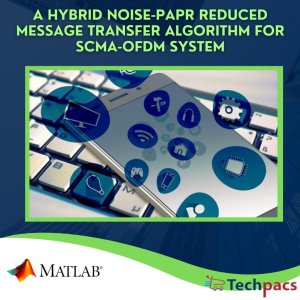
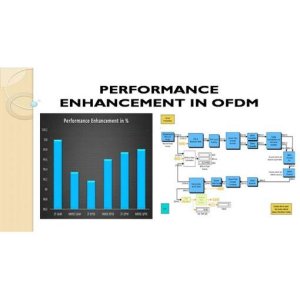
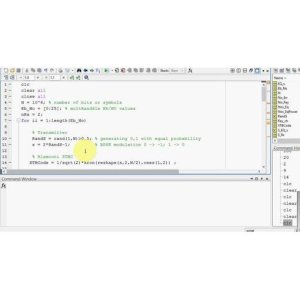

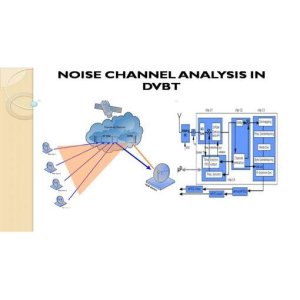
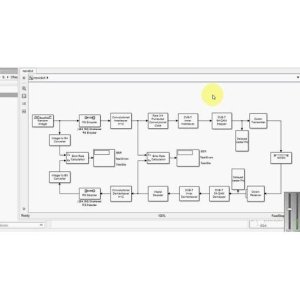































No comments found for this product. Be the first to comment!